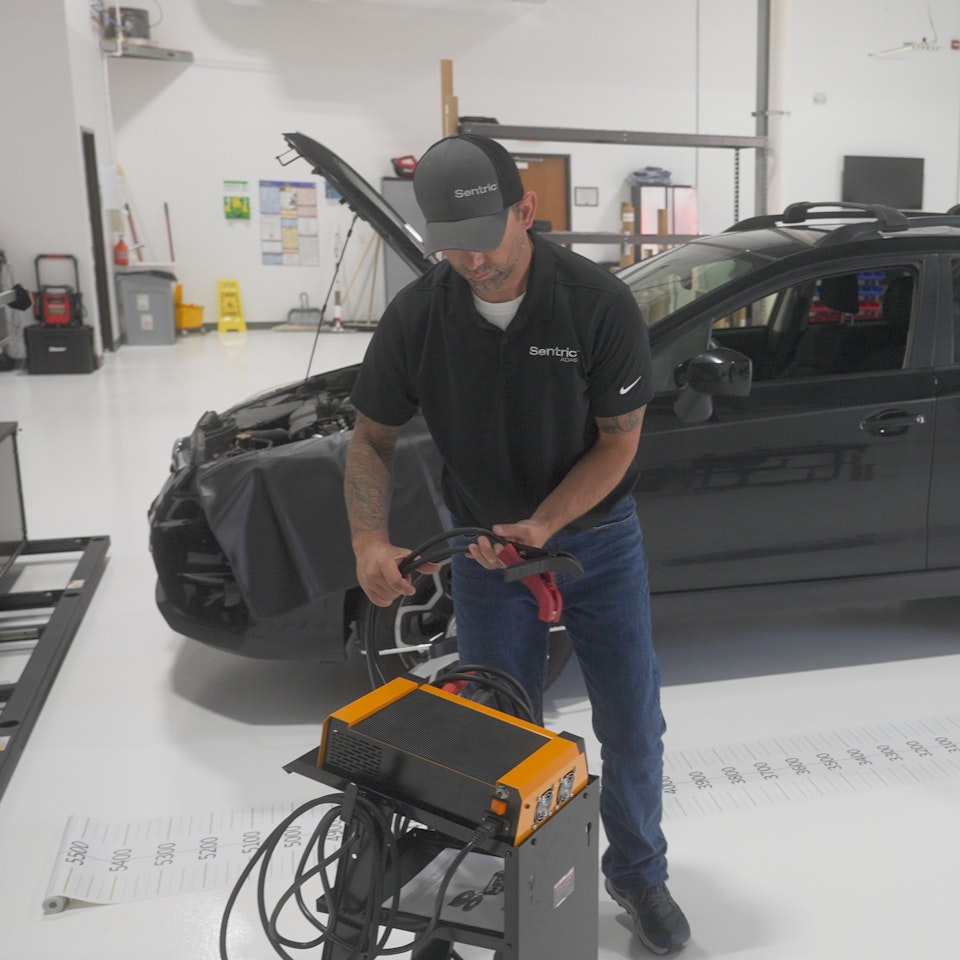ADAS Technology Is Here to Stay: Why Body Shops Must Adapt or Risk Falling Behind


As Advanced Driver Assistance Systems (ADAS) redefine vehicle safety and performance, the automotive landscape is experiencing a lasting transformation. This shift toward advanced vehicle technology brings obstacles and potential advantages for body shops. Those who adapt to the new demands of ADAS calibration will thrive, while those who resist or delay embracing these changes risk falling behind.
Let's explore why body shops must adopt ADAS technology to ensure their future success.
The Importance of ADAS Calibration
ADAS is now standard in all new vehicles, with manufacturers equipping these cars with advanced technologies like adaptive cruise control, lane-keeping assist, blind-spot detection, and automatic emergency braking. These systems must undergo precise recalibration to confirm they operate as intended after most collision or repair work, especially those involving the vehicle's body structure or windshield. Accurate and precise calibrations are crucial for maintaining the vehicle’s safety features and ensuring the driver assistance systems work accurately.
For body shops, ensuring these ADAS systems are accurately and properly calibrated is becoming a critical piece of the overall repair plan. As more automakers outfit new cars with these advanced systems, the demand for precise calibration grows.
Failing to adapt to the rise of ADAS technology can significantly impact a body shop’s business in several ways:
- Loss of revenue: Vehicles with ADAS technology require specialized repair and calibration services. Working with a partner that has the right technology will be critical as more consumers invest in ADAS technology-equipped vehicles.
- Reduced customer trust: ADAS technology enhances vehicle safety. If these systems aren’t accurately calibrated after repairs, it could lead to malfunctions or failures that compromise safety measures and a decline in customer trust and the shop's reputation. As awareness of ADAS technology escalates, customers are more likely to choose shops that can ensure and prove their vehicles are repaired correctly and safely.
- Legal and liability issues: Incorrectly calibrated ADAS can result in costly comebacks in accidents and expose body shops to potential legal liabilities. The shop may be found responsible if an accident occurs due to inaccurately calibrating an ADAS feature in a customer’s vehicle. Ensuring accurate calibrations protects the shop and its customers from possible legal issues. In fact, “just one degree of misalignment can cause the average-sized vehicle with lane departure warning to leave its lane within 180 feet,” according to Pam Oakes, automotive subject matter expert, author, syndicated radio host, and automotive-consumer news media commentator.
Challenges of ADAS Integration in Body Shops
As body shops encounter more ADAS-equipped vehicles, integrating these advanced systems into standard repair processes introduces new challenges. Unlike traditional repairs, ADAS calibration requires an in-depth understanding of sensor placement, camera alignment, and software updates. These systems are often highly sensitive, meaning even small inaccuracies in recalibration can lead to malfunction, negatively affecting vehicle safety.
Additionally, the rapid evolution of ADAS technology means that technicians must keep pace with constantly changing requirements and updates from manufacturers. This makes ongoing training and adjustment essential, as body shops need to keep up with the latest tools, techniques, and standards. The complexity of ADAS systems can also extend repair timelines, as technicians must account for the additional steps required for proper recalibration.
Despite these challenges, embracing the integration of ADAS technology offers body shops an opportunity to provide higher-value services and meet the growing demand for accurate, technology-driven repairs.
The complexity and constant evolution of ADAS systems make it essential for body shops to partner with specialized calibration providers with the expertise and OE-equivalent equipment needed to ensure accurate recalibrations.
These partnerships allow shops to deliver the precision and safety required without costly equipment and training investments. By collaborating with trusted partners like Sentric, body shops can ensure that every repair meets the highest standards while focusing on their core services, ultimately building customer trust and loyalty.
Sentric has made all the investments to ensure calibrations are conducted correctly every time. We are committed to performing ADAS calibrations that meet OE specifications using Burke Porter equipment, representing the gold standard in EOL calibrations, that has been designed specifically for our labs. We also employ OE-adapted tools, procedures, and software for ADAS calibration, featuring OEM equipment and target positioning in an environment specifically designed for calibrating ADAS components.
Embracing the Future of Vehicle Repair
ADAS technology is not a passing trend; it’s a fundamental shift in the automotive industry that’s here to stay. As these systems evolve, they are paving the way for greater automation in driving, leading to more semi-autonomous and fully self-driving cars. This evolution represents a unique opportunity for body shops to differentiate themselves by embracing these changes and leading the way in advanced vehicle repair.
By adapting to the demands of ADAS technology, body shops can secure their place in the future of the automotive repair industry. The choice is clear: find a capable partner for ADAS calibrations or be left behind.
For more points of view on this topic, see:
How Alignment Angles Affect ADAS
Industry Voices | Transforming the Future of Vehicle Ownership With ADAS Technology